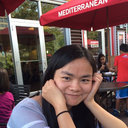Radix Angelica Sinensis that contains the component Z-ligustilide promotes adult neurogenesis to mediate recovery from cognitive impairment.
Nøgleord
Abstrakt
Radix Angelica Sinensis (RAS) has beneficial effects in patients suffering from cognitive impairment associated with chronic cerebral hypoperfusion. It has previously been demonstrated that RAS prevents the neurotoxic effects of β-amyloid (Aβ) in vitro, protects from injuries due to oxidative stress, inflammation and apoptosis and ameliorates scopolamine-induced amnesia in rats. Here, we studied the effects of RAS on cognitive improvement and neurogenic enhancement and examined the possible underlying mechanisms in a rat model with permanent bilateral common carotid artery occlusion, which serves as a model of chronic cerebral hypoperfusion-related neurodegenerative diseases. RAS enhances adult neurogenesis in the hippocampus following chronic cerebral hypoperfusion and improves the cognitive decline associated with hypoperfusion. Long-term ablation of adult hippocampal neurogenesis through cranial irradiation abolishes the protective effects of RAS on cognition. Furthermore, administration of RAS restores the decrease of brain-derived neurotrophic factor (BDNF) expression, the phosphorylation of cAMP-responsive element binding protein (CREB) and the glutamic acid decarboxylase 65 (GAD65) staining intensity in rats with chronic cerebral hypoperfusion. The present study supports the hypothesis that adult neurogenesis is required for RAS to facilitate recovery from the cognitive impairment induced by chronic cerebral hypoperfusion, while neurogenic enhancement secondary to RAS treatment may be due to increased BDNF and phosphorylated cAMP-responsive element binding protein (p-CREB) levels and increased γ-aminobutyric acid (GABA) expression. Based on the possible mechanisms suggested by the present study, this well-known traditional medicine may represent a candidate therapeutic agent for the treatment of dementia associated with vascular injury.


